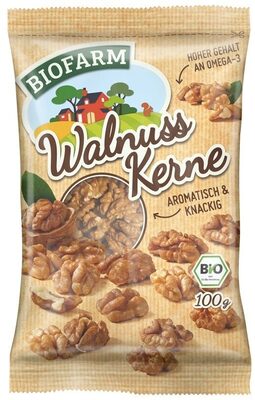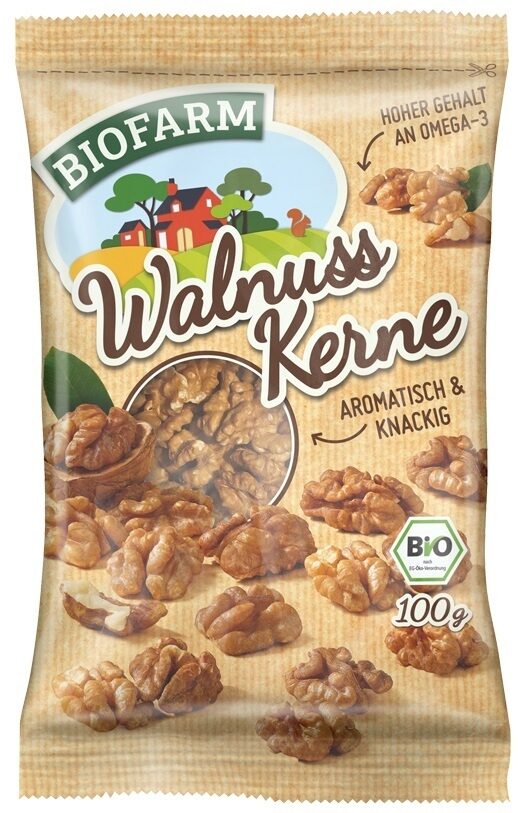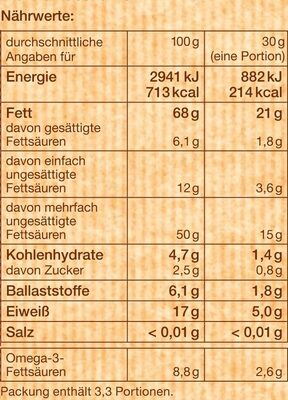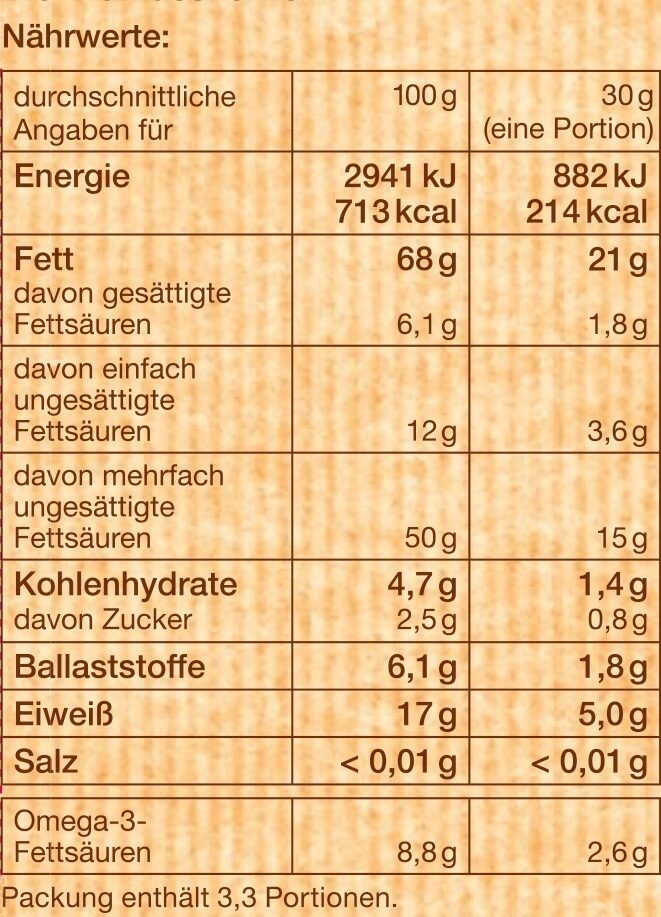Walnusskerne - Biofarm - 100 g
Some of the data for this product has been provided directly by the manufacturer Kluth.
Barcode: 4008088255011 (EAN / EAN-13)
Common name: Bio-Walnusskerne
Quantity: 100 g
Brand owner: Herbert Kluth (GmbH & Co. KG)
Categories: Plant-based foods and beverages, Plant-based foods, Nuts and their products, Nuts, Shelled nuts, Walnuts, Walnut kernels
Labels, certifications, awards:
Organic, Vegetarian, EU Organic, Vegan, EG-Öko-Verordnung, The Vegan Society


Origin of the product and/or its ingredients: Moldawien, Vereinigte Staaten, Chile
Origin of ingredients: United States, Chile, Moldova
Producer: Kluth
Manufacturing or processing places: Henstedt-Ulzburg, Schleswig-Holstein
Link to the product page on the official site of the producer: http://www.kluth.com
Countries where sold: Germany
Matching with your preferences
Other information
Warning: Nüsse können in die Atemwege von Kleinkindern gelangen.
Period of time after opening: de:7-9 Monate
Report a problem
Data sources
Product added on by kakao
Last edit of product page on by worldtest.
Product page also edited by ecoscore-impact-estimator, kiliweb, mgasch, openfoodfacts-contributors, org-kluth, packbot, roboto-app, twl, yuka.sY2b0xO6T85zoF3NwEKvlldJDMrO_inpKBfQqHyzmPuPf4zvZYxV7IPQMKg.













